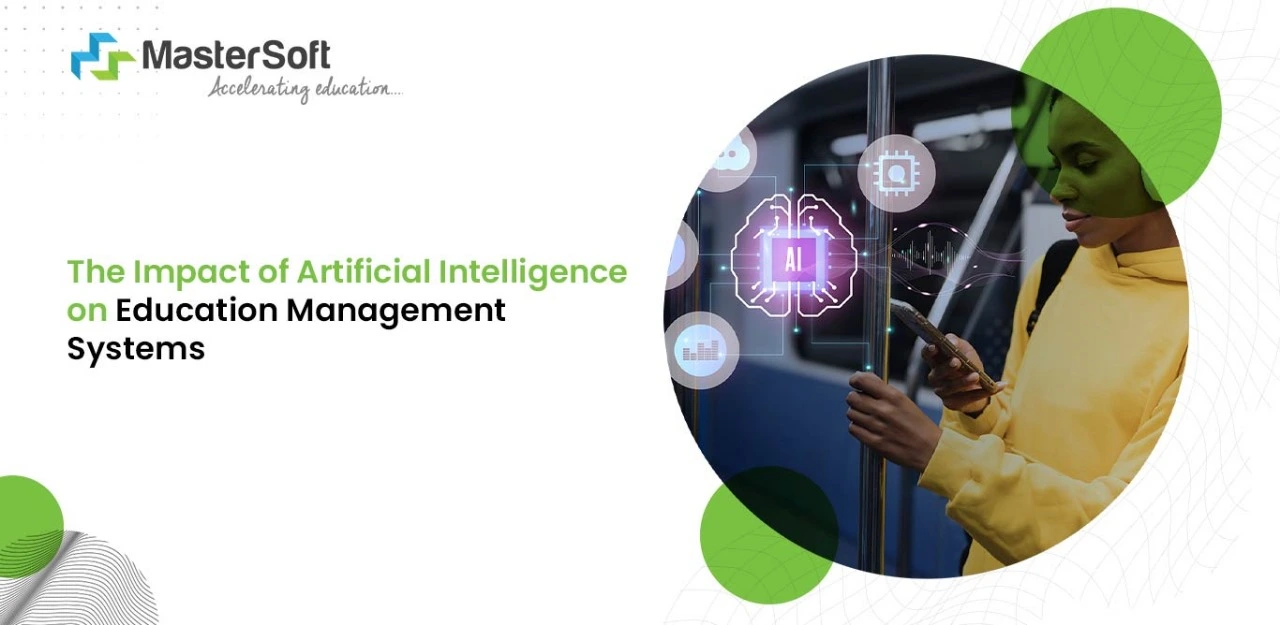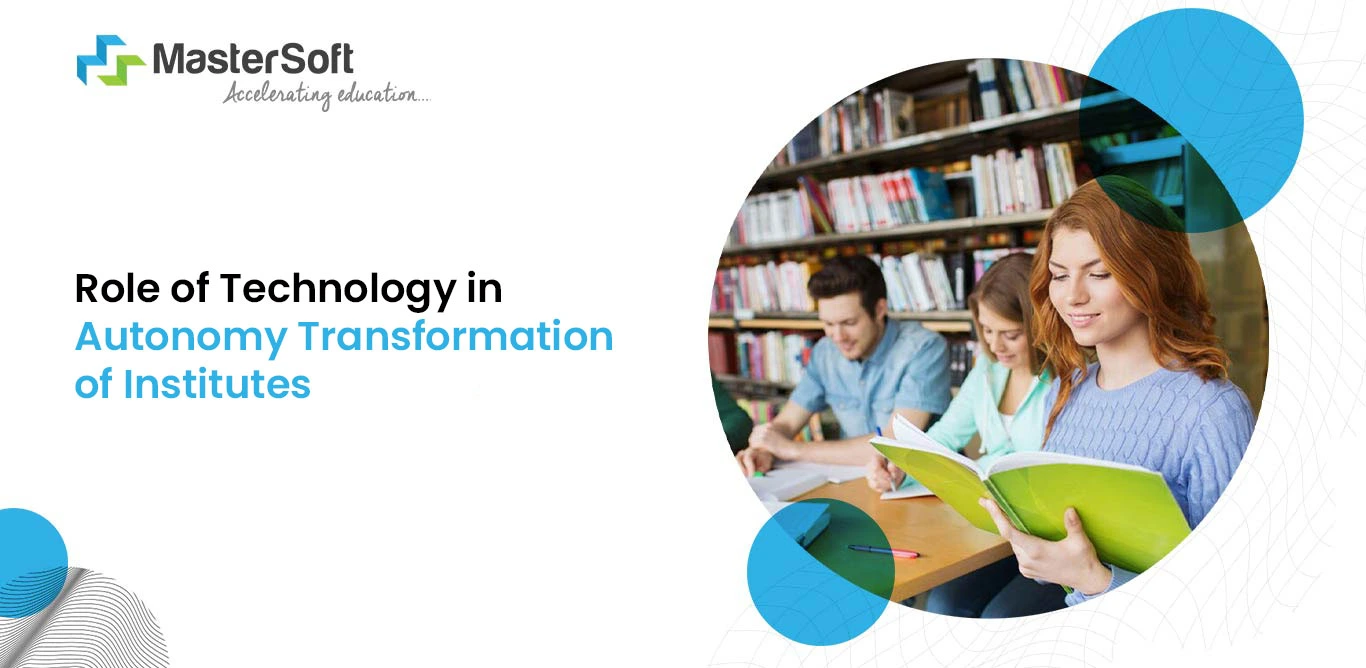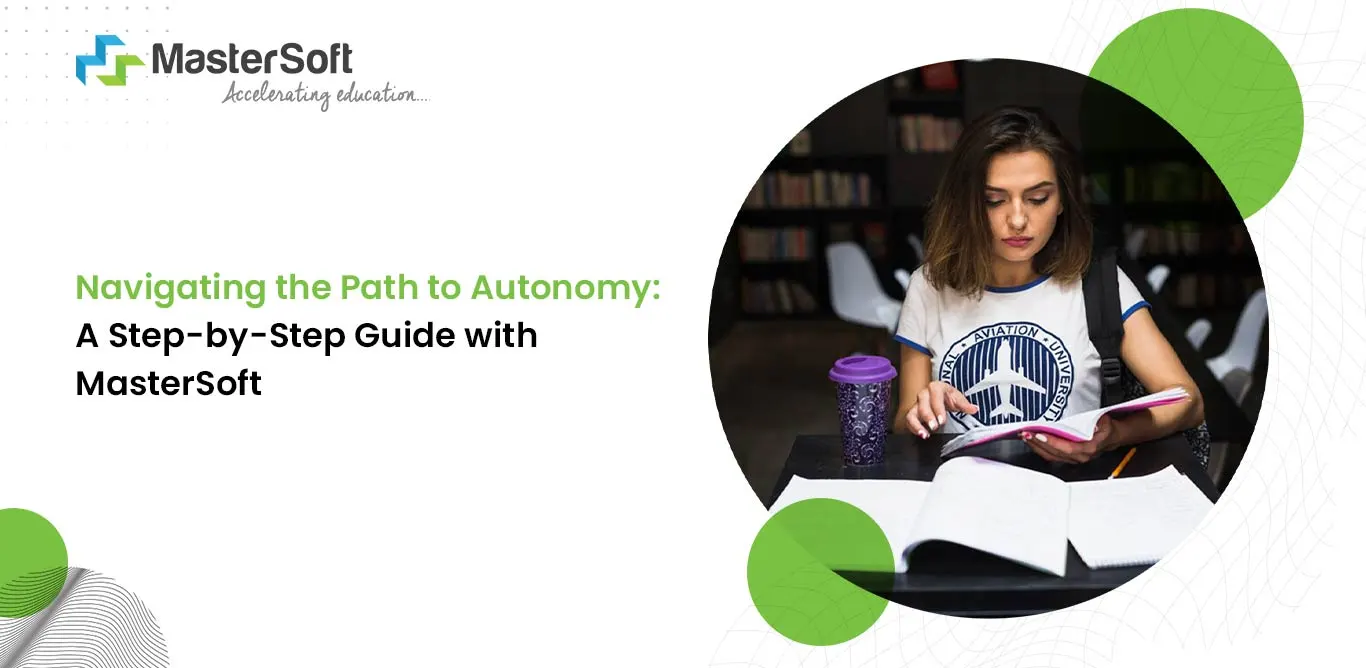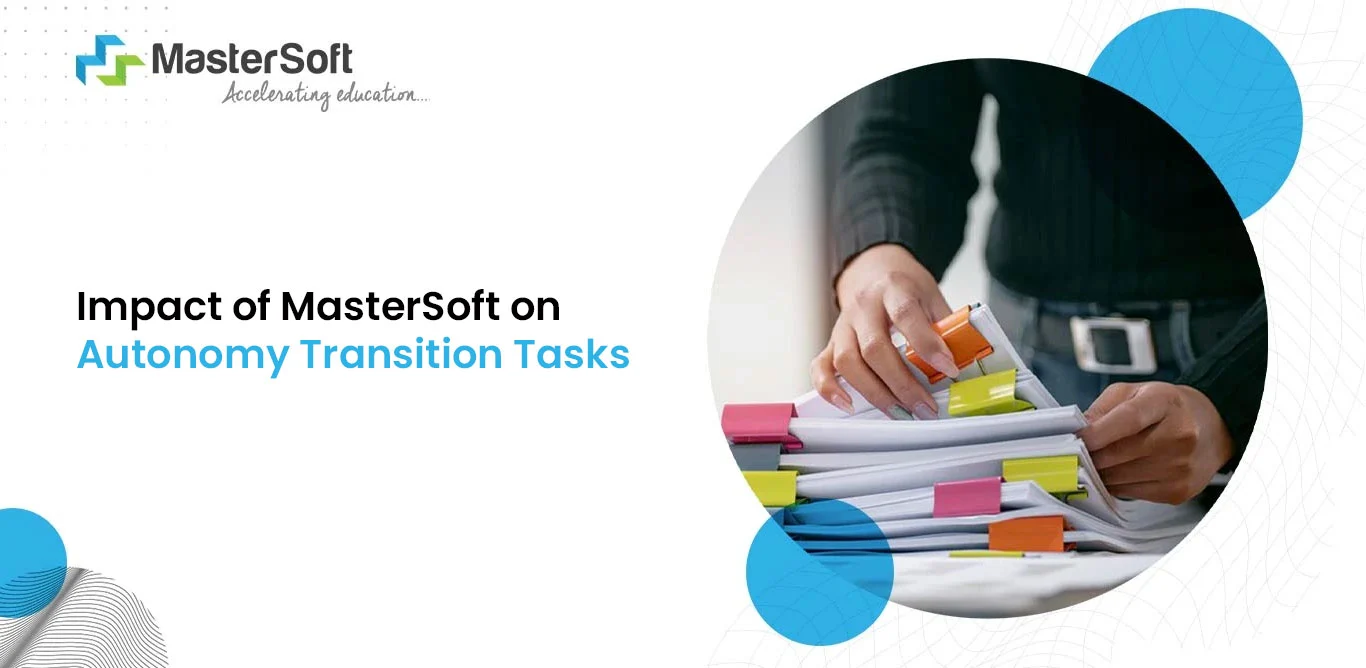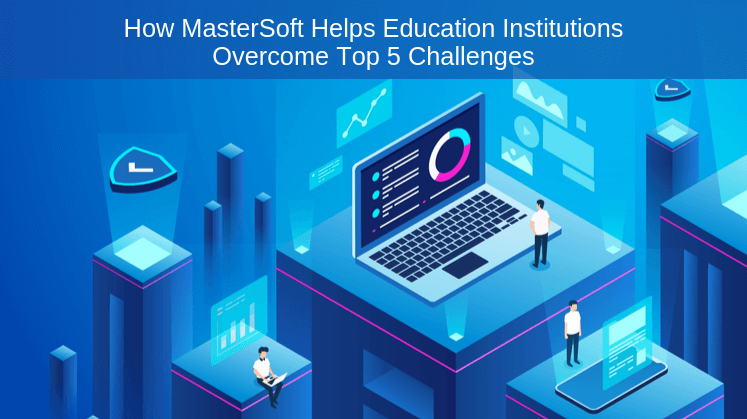17, Nov 2023
Artificial Intelligence (AI) has been transforming various sectors of our lives, and education is no exception. Like a silent but powerful revolution, it's overhauling traditional Education Management Systems (EMS). These AI-driven changes are all about enhancing efficiency, personalization, administration, and the creation of intelligent content.
The Evolution of Education Management Systems
Education Management Systems (EMS), also referred to as education ERP solutions, are comprehensive platforms that handle various aspects of educational institutions, from student enrollment and attendance tracking to resource allocation and academic assessment.
Historically, EMS primarily relied on manual data entry and processing. This often resulted in inefficiencies, errors, and a significant amount of administrative burden for educational institutions. However, AI has brought about a paradigm shift by automating many of these processes and introducing data-driven decision-making, making education more efficient, accessible, and tailored to individual needs.
Customising Your Education Management System For Specific Needs
Impact of AI on Education Management Systems
The impact of AI on education ERP solutions can be categorized into three distinct domains: administration, instruction, and learning.
1. Administration: The PowerI of Efficiency
AI in education administration has ushered in a new era of efficiency. Tasks that were once time-consuming and manual can now be completed rapidly, allowing administrators to allocate their time to more strategic endeavours.
Here's how AI is reshaping education administration:
Faster Task Completion:
AI automates administrative tasks such as student enrollment, timetable scheduling, and attendance tracking. This leads to quicker task completion and a significant reduction in administrative burdens.
Personalised Study Plans:
AI identifies individual preferences and uses data analysis to create personalised study plans for students. This personalisation enhances the learning experience, ultimately leading to improved outcomes.
2. Instruction: Customised Learning Journeys
AI-supported instruction in education is all about catering to individual student needs and addressing learning deficiencies early.
Here's how AI impacts instruction:
Identifying and Filling Learning Gaps:
AI analyses educators' educational materials and presentations, pinpointing gaps in the content. It can recommend adjustments, ensuring that students receive the most comprehensive education.
Chatbots:
AI-driven chatbots are increasingly being integrated into college ERP. Students can interact with these chatbots using laptops or iPads, receiving assistance in specific subjects. These chatbots can also analyse students' performance and provide valuable insights, reducing the workload of teachers and enhancing communication between schools and parents.
Learning Management System (LMS):
Learning Management System college ERP platforms infused with AI offer a centralised system for managing various aspects of education, from coursework assignments to student progress tracking. They streamline communication with parents and students, generating reports on student performance.
3. Learning: A Future of Possibilities
In the realm of learning, AI is poised to revolutionise the way students acquire knowledge.
Here is how AI impacts learning:
Emotional Well-Being:
AI can gauge a student's emotional state and adapt the learning environment accordingly. Gamification and AI-driven emotional recognition technology make learning fun and engaging. It can detect when students are struggling and offer support to help them improve.
Role Of Management Information System (MIS) In Education Sector
Robotics:
The integration of AI with robotics in education enhances student safety and engagement. AI-powered robots provide a unique learning experience, allowing students to learn at their own pace without fear of judgment. They also enable teachers to experiment with new teaching methods.
Virtual Reality (VR):
AI and VR are already transforming education. VR creates immersive, 3-D computer-generated environments where students can explore and interact with educational content. It facilitates remote learning, connecting students and teachers from different locations. VR encourages more engaging teaching methods, deepening understanding and engagement.
Benefits of AI in Education Management Systems
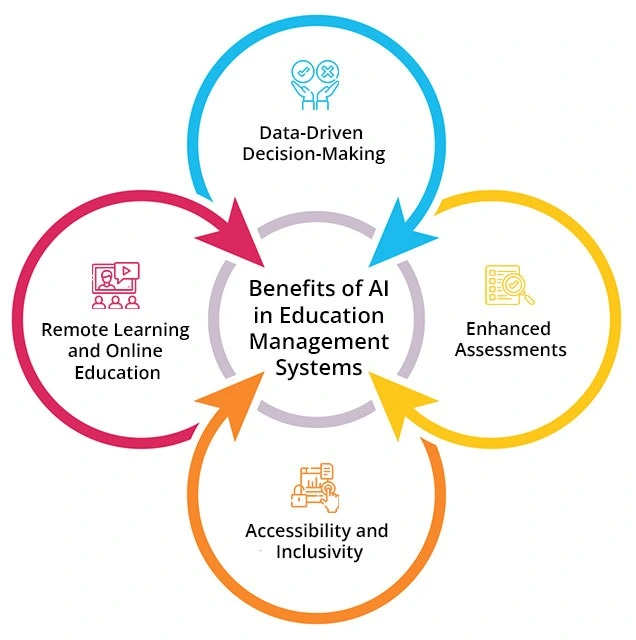
The incorporation of Artificial Intelligence (AI) into education ERP offers numerous advantages, transforming education in multiple ways.
Following are the key benefits:
- Data-Driven Decision-Making: AI's data processing capabilities enable informed decisions, including predicting student outcomes and optimising resource allocation.
- Enhanced Assessments: Automated grading and consistent evaluation reduce teacher workload and grading bias, providing efficient and fair assessments.
- Accessibility and Inclusivity: AI assists students with disabilities, aids in language accessibility, and promotes a more inclusive learning environment.
- Remote Learning and Online Education: AI supports remote learning, monitors student progress, and ensures assessment integrity in virtual classrooms.
Challenges and Concerns
While these advantages demonstrate the transformative potential of AI in college ERP, it's important to be mindful of the challenges that come with this technological integration.
- Privacy and Data Security: The use of AI in education ERP involves the collection and analysis of sensitive student data. Ensuring data privacy and security is paramount to protecting students' personal information.
- Bias and Fairness: AI algorithms can inadvertently perpetuate biases present in historical data. Ensuring fairness in AI systems, especially in educational contexts, is crucial to avoid discrimination.
- Teacher and Administrator Training: Educators and administrators need training to effectively use AI-powered college ERP. Schools and institutions must invest in professional development to maximise the benefits of AI.
- Ethical Use of AI: Decisions made by AI systems, such as recommending courses or predicting student performance, should be transparent and ethically sound.
What is the Future of AI in Education Management Systems?
As Artificial Intelligence (AI) continues its march forward, the Education Management Systems (EMS) of the future are poised for transformation.
Here's a glimpse into the potential scenarios that await:
AI-Powered Virtual Classrooms:
- In the not-so-distant future, AI-driven virtual classrooms will likely become the new standard.
- These virtual learning environments will offer students a seamless blend of AI-enhanced content delivery, personalised assessments, and the flexibility to access high-quality education from virtually anywhere on the globe.
AI Tutors and Learning Assistants:
- AI-driven tutors will be a ubiquitous presence in the educational landscape.
- They'll be available around the clock, offering students personalised, one-on-one support with their homework and coursework.
- These AI learning assistants will empower students to learn at their own pace, making education more accessible and individualised.
AI-Enhanced Career Counselling:
- AI will step into the role of career counsellor, helping students make well-informed decisions about their educational and professional paths.
- By analysing students' strengths, weaknesses, and personal preferences, AI will provide valuable insights, guiding them towards fulfilling and suitable career choices.
National Education Policy 2020: All You Need To Know About NEP 2020 For Schools
Blockchain for Credential Verification:
- The integration of blockchain technology into college ERP will introduce a new era of trust and security.
- By providing a tamper-proof and transparent method for verifying student credentials and qualifications, blockchain will enhance the reliability and integrity of credential verification processes.
- This technological innovation will ensure that student achievements are recognised and respected with the highest level of authenticity.
Final Thoughts,
The impact of Artificial Intelligence on Education Management Systems is profound and promising. From improving administrative efficiency to personalising the learning experience, AI is reshaping the way educational institutions function.
While some challenges and concerns need to be addressed, the potential benefits are enormous. As we move forward, it's crucial to strike a balance between embracing AI's potential and ensuring its ethical and responsible use in education.
Streamline Teaching-Learning Process with MasterSoft’s Edication Management System
Mobile: 08448010216
Email:info@mastersofterp.com

